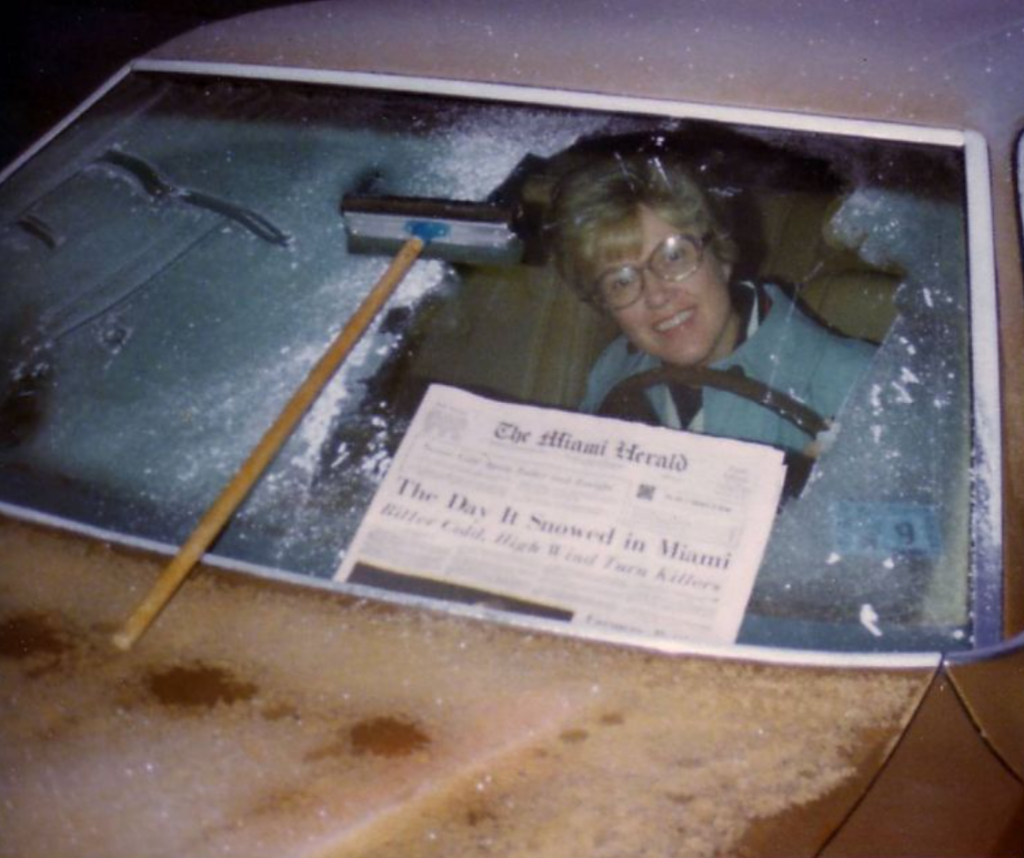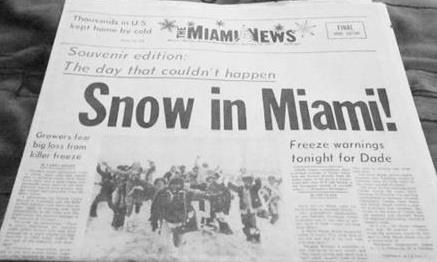Category: Business
Art Basel Miami Beach 2024: Art, Culture, and Global Connections
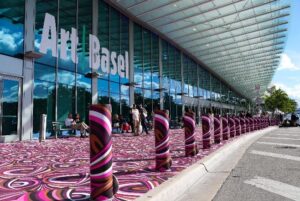 Art Basel Miami Beach 2024, America’s premier art show, is a major local economic driver and an international cultural platform for renowned artists and galleries. Held December 2- 8, 2024, the global art fair stimulated hospitality and continues to evolve into a cultural experience known as Art Week Miami Beach.
Art Basel Miami Beach 2024, America’s premier art show, is a major local economic driver and an international cultural platform for renowned artists and galleries. Held December 2- 8, 2024, the global art fair stimulated hospitality and continues to evolve into a cultural experience known as Art Week Miami Beach.
Economic Impact
With over 75,000 attendees, the 22nd edition of Art Basel Miami Beach generated an estimated impressive $547 million in economic activity—an increase of nearly 10% from the previous year. This economic infusion was felt across multiple sectors, including:
- Hospitality: Hotels reported near-total occupancy during the fair, with many establishments reaching premium rate levels.
- Retail and Dining: Restaurants, clubs, and luxury retailers experienced significant increases in patronage, further emphasizing the fair's economic ripple effect.
- Transportation: Private jet arrivals and luxury vehicle rentals surged, underscoring Miami Beach's appeal to high-net-worth individuals.
Building Global Relationships
Art Basel Miami Beach provides a platform for fostering international relationships that enhance Miami Beach’s cultural and economic significance. During Art Week Miami Beach 2024, the City of Miami Beach welcomed a delegation from Basel, Switzerland, and members of the Swiss diplomatic and business communities.
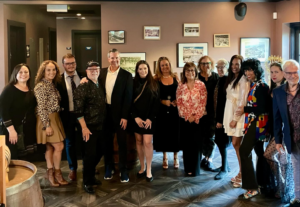 The Swiss delegation met with Mayor Steven Meiner, City Commission members, and local businesses to celebrate the Sister City relationship between Miami Beach and Basel, Switzerland. Discussions focused on fostering deeper cultural and economic exchanges to benefit both cities.
The Swiss delegation met with Mayor Steven Meiner, City Commission members, and local businesses to celebrate the Sister City relationship between Miami Beach and Basel, Switzerland. Discussions focused on fostering deeper cultural and economic exchanges to benefit both cities.
“Our enduring partnership with Basel, Switzerland, is invaluable,” said Mayor Steven Meiner. “This alliance ignites boundless opportunities, driving bold, visionary endeavors that push the frontiers of artistic innovation and global cultural impact.”
Honorary Consul of Switzerland in Miami René Riedi added, “The Sister City relationship between Basel and Miami Beach is a vital link that continues to deepen our cultural and economic exchange. We are thrilled to expand this meaningful connection.”
Cultural Milestone
Art Basel has solidified Miami Beach as a cultural epicenter, drawing international art enthusiasts, collectors, celebrities, and industry leaders. The 2024 show featured 286 galleries and showcased works from globally renowned and emerging artists . Major sales, such as David Hammons’ "Untitled (2014)" for $4.75 million, underscored the fair’s role as a marketplace for high-caliber contemporary art.
The event extends beyond the art world, positioning Miami Beach as a premier destination for creativity and innovation. Local institutions including the Greater Miami Convention and Visitor Bureau (GMCVB), Bass Museum, Miami Beach Botanical Garden and local and countywide hospitality and cultural organizations amplified the city’s reputation as a hub for art and culture, tourism, and economic vitality. Beyond the canvas, public-private partnerships and investments in cultural infrastructure, including galleries, museums, and public art programs, are transforming Miami Beach into a year-round destination for art lovers and creatives.
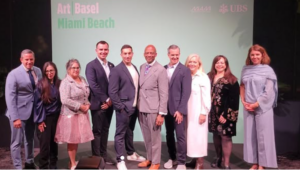
Looking Ahead
As Miami Beach continues to host Art Basel, the city reaffirms its commitment to fostering an environment where art and commerce thrive together.
Art Basel Miami Beach is a shining example of how a single event can redefine a city’s identity, proving that art is not only a celebration of creativity but also a cornerstone of economic development.
This Month in Miami Beach History: The Day It Snowed in Paradise
Miami Beach is synonymous with sunshine and tropical vibes, and on January 19, 1977, the city experienced something entirely unexpected……snow! For the first, and only, time in recorded history, South Florida saw flurries, turning our sunny paradise into a fleeting winter wonderland.
While the snow did not last, it did capture the imagination of locals and visitors. Businesses embraced the unusual weather, showcasing creativity, resilience, and humor that define Miami Beach. From warm drink specials at cafes to impromptu “winter in paradise” photo ops, the city adapted in style and with a smile.
This rare moment reminds us that even in the face of the unexpected, Miami Beach is a place where challenges spark imagination, innovation and fun.
Take a closer look at this fascinating piece of Miami Beach history—and check out photos from the snowy day.
41st STREET BUSINESS IMPROVEMENT DISTRICT
ONE YEAR ANNIVERSARY: Improving the Gateway to Miami Beach
January 2025 begins with possibilities and new beginnings. A time to reflect on the past, set goals and strategies, and implement, activate and embrace a fresh ideas, projects and programs. To get a snapshot of the 2025 plans, Amy Mehu, the Executive Director of the 41st Street Business Improvement District shared the past and future goals for 41st Street.

What brought you to the 41st Street Business Improvement District?
I think the opportunity to leverage my decade of experience in government affairs, economic development, community advocacy, and passion to foster collaboration with stakeholders and valuable partnerships, by creating platforms where we can enhance the presence of the 41st Street corridor through networking and opportunities was appealing. As a former Interim Director of Miami Beach Economic Development Department, as well as my tenure in the City Manager’s Office, I am enthusiastic about creating resources that support business development, including a start-up ecosystem, and increasing the visibility and engagement of 41st Street locally and beyond.
Tell us about the 41st Street BID. A Business Improvement District (BID) is a public-private partnership that uses special assessments to fund local improvements in a defined geographic area.
- Purpose
BIDs supplement public services and create economic benefits for their members. They can provide services that go beyond what the city offers, such as special events, marketing, and security.
- Structure
BIDs are created by the city and managed by public or nonprofit boards. These Board of Directors include local business representatives, residents, and local government officials.
- Funding
Commercial property owners elect to self-impose assessments to fund projects and services beyond those provided by the city. This collective investment aims to enhance the district’s attractiveness, boost economic activity, and improve property values, benefiting businesses and the community alike.

The 41st Street Business Improvement District (BID) was established over a two-year period beginning in early 2021 and initiated by the Mayor’s Blue-Ribbon Committee – a group of passionate neighborhood business advocates. This group of dedicated property owners created a BID Steering Committee. Led by Ira Giller, current BID President, the Steering Committee advocated for the district's formation. Their collaborative efforts culminated in a successful creation of the BID in 2023. Currently the Board of Directors includes Ira Giller, Ricki London, Andrew Resnick, Alex Fryd, Michael Goldberg, Aaron Haimov, Judy Schottenstein, Seth Gadinsky and Orli Teitelbaum.
The mission of the 41st Street BID is to enhance the corridor's economic vitality, aesthetic appeal, and overall experience for residents and visitors. The vision is to support the transformation of 41st Street into a vibrant, pedestrian-friendly area that enhances the Miami Beach gateway for the next ten years.

Tell us about how collaboration is essential to the success of the BID? The City of Miami Beach provides essential services, and the BID enables property owners and business owners to directly influence, and fund specific enhancements uniquely tailored to the 41st Street corridor needs. This collaborative approach ensures that improvements align closely with the community's vision and priorities.
Currently, efforts are concentrated on engaging with property owners and businesses to develop long-term strategies and advocating for their short-term and long-term needs. As the BID evolves, the plan is to implement visible projects that showcase the potential and attract more visitors and encourage investments. Additional services include, but not limited to, enhanced street cleaning, enhanced public safety enhancements, marketing and events, beautification, and business development.
What are the main challenges in the next few years? One of the key challenges is ensuring that, as new opportunities and projects emerge, the priority of the district remains aligned with the community. Property owners play an essential role in this success, as is recognizing the perspectives of residents and businesses. While all viewpoints may differ, the shared vision is clear to make 41st Street a thriving and vibrant community.
The BID focuses on supporting property owners by fostering open communication, offering insights into evolving opportunities, and advocating for solutions that balance growth with the needs of the broader community. When initiatives like redevelopment, new amenities, or improvements arise, addressing concerns early and providing clear explanations of the benefits are essential.
Five years from now, what changes are expected on 41st Street commercial area? With the anticipated completion of the City’s General Obligation Bond (G.O. Bond) project, which will revitalize the 41st Street corridor with neighborhood landscaping and infrastructure improvements, in spring 2028, the corridor will have improved walkability and flow, making it easier and more enjoyable to explore. in five years, 41st Street corridor redevelopment will be a gamechanger. The corridor will be a central hub—a place where people can pick up fresh produce, shop for local goods, and feel connected to their community. There will be a mix of dining options and retailers that create energy and activity, offering something for everyone. Parking, guided by the BID’s vision, will be more practical and accessible, addressing a need that has long been discussed and reimagined workforce housing seamlessly integrated, supporting the people who contribute to the vitality of the street.
The future vision of 41st Street is to be a locally, regionally, and potential nationally known destination where businesses thrive, neighbors gather, and visitors are drawn to its charm and convenience.
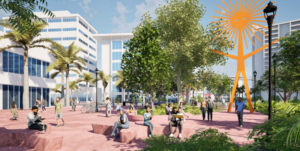
The BID meetings are open to the public, when are the meetings and how can the public observe and/or participate?
Members of the community can stay informed about the BID, and receive updates on meeting times and details by joining our mailing list at: www.tinyurl.com/Join41st.
New Businesses on 41st Street
SAB Biotherapeutics (SAB Bio) 777 W 41st Street, Suite 401 | Spring 2024 | Office Size: 1,300 sq. ft.
SAB BIO is a clinical-stage biopharmaceutical company. Led by Chairman and CEO Samuel J. Reich, a longtime Miami resident, SAB BIO focuses on developing groundbreaking therapies for immune and autoimmune disorders. Their lead clinical trial isSAB-142, which targets Type 1 Diabetes, aiming to delay and potentially prevent disease progression.
“Florida offers the right mix of a strong business climate and growing biotech presence, and we are excited to grow within the Miami area and to open an office on 41st Street,” shared Reich.
The SAB BIO opening highlights 41st Street’s growing appeal for innovative businesses and emerging industries.
Bagel Boss 740 W 41st Street | Fall 2024
Hailing from New York, Bagel Boss has quickly made a name for itself on 41st Street. Known for its freshly baked bagels, hand-crafted spreads, and classic deli sandwiches, Bagel Boss offers locals and visitors a taste of New York tradition. It’s already becoming a neighborhood staple for a quick breakfast or lunch on the go.
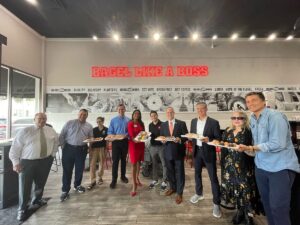
Royal Veterinary Center 453 Arthur Godfrey Road, Miami Beach | Just Opened
The Royal Veterinary Center brings premium pet care to Miami Beach with a focus on both routine and urgent care services. Open 7 days a week and offering extended hours, Royal Vet Center provides wellness checkups, dental care, diagnostics, and treatments for dogs, cats, and exotic pets. With convenient rear parking and a compassionate team of professionals. Pets just get more than good care, they get great treatment.
What does the future hold? The priority of the 41st Street BID is to bring the Vision Plan to life, transforming the corridor into a vibrant live-work-play (pray + learn) destination that serves the community by attracting and supporting new strategic opportunities. The BID is dedicated to aiding property owners and businesses in fostering a welcoming, pedestrian-friendly environment that balances local charm with broader appeal. Central to our vision, is attracting a mix of high-quality offerings, including upscale restaurants, unique boutiques, and essential workforce housing. The BID will continue to ensure that enhancements from the GOB project, like expanded sidewalks, lush shade canopies; and future BID projects such as centralized valet services to improve accessibility and reduce congestion, are realized for a safer, more enjoyable, more accessible 41st street.
HONORING EXCELLENCE: Proclamations Recognize Key Miami Beach Business Contributors (Event Recap)
On November 13, the Miami Beach Commission proudly recognized two outstanding organizations that significantly contribute to our city's cultural and economic landscape. These proclamations celebrate their continued commitment to making Miami Beach a thriving, interconnected community.
Miami Beach Visitor and Convention Authority (MBVCA)
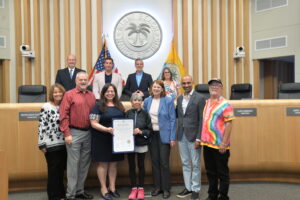 The MBVCA received a Certificate of Recognition for its steadfast dedication to promoting Miami Beach as a premier global destination. Since its establishment in 1967, MBVCA has bolstered our city’s reputation by supporting renowned events such as Art Basel, South Beach Wine and Food Festival, and Miami Beach Pride. These events not only enhance our cultural vitality but also generate significant economic activity.
The MBVCA received a Certificate of Recognition for its steadfast dedication to promoting Miami Beach as a premier global destination. Since its establishment in 1967, MBVCA has bolstered our city’s reputation by supporting renowned events such as Art Basel, South Beach Wine and Food Festival, and Miami Beach Pride. These events not only enhance our cultural vitality but also generate significant economic activity.
Additionally, the MBVCA's recent accolades, including two Magellan Awards for hospitality innovation, highlight its success in leveraging technology and marketing. The EXP Miami Beach Tours App, which enhances visitor planning through dynamic content, exemplifies their forward-thinking approach. Their ongoing efforts ensure Miami Beach remains a vibrant, top-tier destination for tourists worldwide.
The Setai Hotel
Celebrating nearly two decades in Miami Beach, The Setai Hotel earned recognition for its exemplary commitment to community service. Beyond providing luxury accommodations, The Setai actively addresses pressing social issues by partnering with organizations like Feeding South Florida and Lotus House. Their initiatives combat hunger, homelessness, and economic disparity, fostering meaningful change in the community.
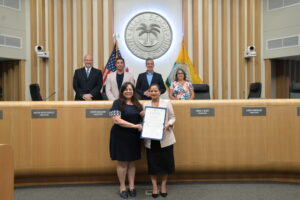 Moreover, The Setai's emphasis on diversity and inclusion has garnered prestigious accolades, including a Diversity Award from the Greater Miami and the Beaches Hotel Association. With a workforce representing over 30 countries, they champion a workplace that embraces unity and mutual respect.
Moreover, The Setai's emphasis on diversity and inclusion has garnered prestigious accolades, including a Diversity Award from the Greater Miami and the Beaches Hotel Association. With a workforce representing over 30 countries, they champion a workplace that embraces unity and mutual respect.
As The Setai prepares to celebrate its 20th anniversary, its philanthropic efforts and mission to blend luxury with responsibility continue to inspire.
A Thriving Miami Beach Community
These organizations exemplify the values that make Miami Beach an extraordinary place to live, work, and visit. By promoting tourism and community engagement, they enrich our local economy and strengthen our city’s global appeal. Miami Beach is proud to celebrate their achievements and contributions to our community.
Miami Beach Donates Ambulance to Sister City Nahariya (Event Recap)
This Fall, the City of Miami Beach relaunched the Miami Beach Sister Cities Committee with a purpose to promote peace, understanding, and goodwill through cultural, educational, technical, environmental, and economic exchanges between cities in different countries. Miami Beach started the Sister Cities Program in 1959 and has created long-term partnership that involve people and organized groups at all levels of society. Sister Cities programs encourage citizens to better understand other cultures and communities by learning and supporting trade, democratization, sustainability, and more.
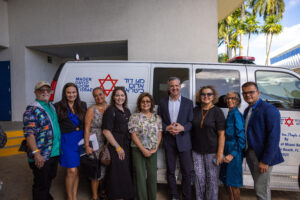 On November 14, 2024, the City of Miami Beach presented a fully equipped ambulance to Sister City, Nahariya, Israel. The donation, organized through the Miami Beach Sister Cities Committee and Magen David Adom, a volunteer non-profit organization that provides disaster, ambulance and blood service in Israel, aims to support emergency response efforts in Nahariya, which has been impacted by recent conflicts.
On November 14, 2024, the City of Miami Beach presented a fully equipped ambulance to Sister City, Nahariya, Israel. The donation, organized through the Miami Beach Sister Cities Committee and Magen David Adom, a volunteer non-profit organization that provides disaster, ambulance and blood service in Israel, aims to support emergency response efforts in Nahariya, which has been impacted by recent conflicts.
This Month in Miami Beach History:
Miami Beach's First Trolley: Connecting Communities Since 1920
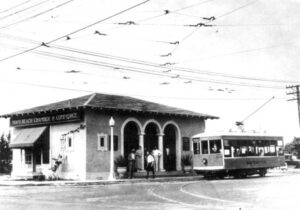
December 8, 1920, marked a transformative moment for Miami Beach as the city’s first electric trolley system began operation. This pioneering transit network not only connected Miami Beach to Miami but also established 13 local stops within the island itself. For a young and growing city, the trolley was more than just a mode of transportation—it was a gateway to opportunity, facilitating commerce, tourism, and community-building.
The introduction of the electric trolley system was part of Miami Beach’s broader efforts to position itself as a modern, accessible destination. As detailed in historical records, including the Florida State Archives, the trolley was a marvel of its time. It allowed residents and visitors to seamlessly traverse the bay, enhancing daily life and making the beach more accessible to those in Miami proper.
By the early 1920s, Miami Beach was quickly becoming a hub for leisure and business, and the trolley played a vital role in this transformation. The 1921 photo of a bustling Miami Beach trolley stop captures the vibrant energy of a city on the rise. Visitors and locals alike depended on this reliable system to reach homes, businesses, and beachside attractions, laying the foundation for the area’s reputation as a world-class destination.
The trolley wasn’t just a symbol of progress; it was a literal bridge between the island and mainland, uniting two communities and spurring Miami Beach’s development as we know it today. This pivotal innovation reminds us of the power of connectivity, a legacy that continues to shape the city’s transportation infrastructure a century later.
BPN SUMMIT 2024: A Celebration of Legacy and Empowerment (Event Recap)
 Discover how legacy building, wealth creation, and community impact intertwined at the Black Professionals Network 2024 Summit! Sponsored by the Miami Beach Economic Development Department, this transformative event engaged over 500 Black professionals and entrepreneurs at the "LegacyCon: House of Heroes" conference. From inspiring keynotes by industry trailblazers like Fawn Weaver to dynamic panel discussions, the summit was a hub of empowerment and actionable insights.
Discover how legacy building, wealth creation, and community impact intertwined at the Black Professionals Network 2024 Summit! Sponsored by the Miami Beach Economic Development Department, this transformative event engaged over 500 Black professionals and entrepreneurs at the "LegacyCon: House of Heroes" conference. From inspiring keynotes by industry trailblazers like Fawn Weaver to dynamic panel discussions, the summit was a hub of empowerment and actionable insights.
Miami Beach Sponsors and Engages at 10th Annual Black Professionals Network Summit
Miami Beach proudly sponsored and participated in the 10th Annual Black Professionals Network (BPN) Summit, held on December 22, 2024, at the Seminole Hard Rock Hotel & Casino. The event, themed “LegacyCon: House of Heroes”, gathered Black professionals, entrepreneurs, and thought leaders uniting them by a common vision: build lasting legacies through financial success, personal development, and community impact.
A Celebration of Legacy and Empowerment

The three-day summit provided a dynamic platform, for over 500 attendees, to gain insights, network, and reflect on their professional journeys. The event featured keynote speeches, panel discussions, workshops, and interactive sessions designed to empower professionals and foster community engagement.
Inspiring Keynote by Fawn Weaver
A highlight of the summit was the keynote speaker Fawn Weaver, co-founder of Uncle Nearest Premium Whiskey and two-time New York Times bestselling author. Weaver shared her remarkable journey of resilience, entrepreneurship, and legacy-building. She spoke about her mission to honor Nathan “Nearest” Green, a formerly enslaved man who taught Jack Daniel the art of distilling, thereby reshaping the whiskey industry by bringing his story to light.

Weaver emphasized the power of storytelling in business and the importance of ownership in building generational wealth. "You can’t compete with marketing dollars, but you can dominate with earned media," she explained, highlighting how she leveraged press coverage to build the Uncle Nearest brand. Her story resonated deeply with the audience as she shared personal experiences of overcoming challenges, including dropping out of high school at 15 and experiencing homelessness.
Empowering Panel Discussions and Workshops
The summit featured a variety of panel discussions and workshops covering topics such as entrepreneurship, wealth building, leadership development, and leveraging technology for business growth.

Miami Beach participated in a panel titled "Operation Opportunity: Powering Progress through Partnerships", which included leaders from government agencies, economic development advocates, and procurement officers to highlight business opportunities available to potential vendors and partners. Veronica Hennig, Senior Redevelopment Specialist from the Miami Beach Economic Development Department, shared information about grants, incentives, and programs designed to attract and support businesses.
"Success in entrepreneurship is deeply rooted in the relationships we build with our communities and government entities," said Ms. Hennig. "Our programs are not just about financial support; they are creating a collaborative environment where businesses and the community grow together."
The summit served as a valuable platform for sharing knowledge, inspiring action, and building connections that will drive economic empowerment. The department remains committed to supporting entrepreneurs and businesses as they navigate opportunities for growth in Miami Beach.
Get Involved with Miami Beach Economic Development
Businesses and entrepreneurs interested in learning more about the city's programs and opportunities are encouraged to contact the Economic Development Department. Resources offered include:
- Grants and Incentives: Financial programs designed to support business attraction, expansion, and retention.
- Business Support Services: Guidance on navigating regulatory processes, accessing local resources, and connecting with key stakeholders.
- Community Engagement Opportunities: Initiatives that foster collaboration between businesses, community organizations, and government entities.
Together, We Can Fuel Growth
We invite you to join us in building a prosperous future for the Miami Beach community. For more information, please visit our www.mbbiz.com.
THE POWER OF LOCAL: Strengthen and enrich our Miami Beach Community
Miami Beach is not just a world-renowned tourist destination; it's a vibrant community enriched by local businesses that give our city its unique charm. According to the U.S. Small Business Administration, small businesses account for 99.9% of all U.S. businesses1, and Miami Beach is no exception. Our local boutiques, art galleries, restaurants, and specialty shops contribute significantly to the city's economy and cultural landscape.
In 2022, consumers nationwide spent a record $23.3 billion on Small Business Saturday alone. Imagine the positive impact if a significant portion of that spending happened right here in Miami Beach. By supporting local businesses, we help sustain jobs, encourage entrepreneurship, and keep our city thriving.
Miami Beach: A Treasure Trove in Our Backyard
In 2023, Greater Miami welcomed over 26.5 million visitors, many of whom spent time exploring our local businesses. While tourists eagerly seek out the treasures our city offers, it's easy for residents to overlook the gems in our own backyard.
This holiday season, locals have the perfect opportunity to rediscover Miami Beach's diverse shopping districts—from the upscale boutiques of Lincoln Road to the eclectic shops of Sunset Harbour and the artistic flair of the Faena District. By choosing to shop locally, residents can find unique gifts and experiences that reflect the spirit of our city while supporting their neighbors.
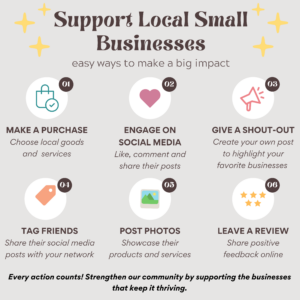
Why Miami Beach Residents Should Shop Local
- Unique Finds: Local businesses offer products that capture the essence of Miami Beach's culture and style, providing gifts that can't be found elsewhere.
- Personalized Service: Shop owners often provide tailored recommendations and exceptional customer service, enhancing your shopping experience.
- Community Growth: Money spent locally stays local. Studies show that for every dollar spent at a small business, approximately 67 cents stays within the community4, fostering economic growth and improvement.
- Environmental Benefits: Shopping locally reduces the environmental impact associated with long-distance shipping and excessive packaging.
Let us make a conscious effort to support the small businesses that make Miami Beach extraordinary. Whether you're purchasing gifts, dining at local restaurants, or enjoying local art and entertainment, every action contributes to the well-being of our community.
STRIVE305 Small Business Saturday Empowers Local Entrepreneurs
with RISE Loan Program Insights
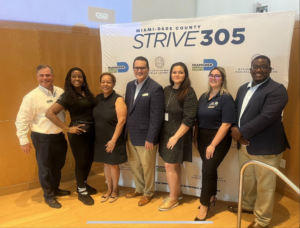 On October 19, 2024, Miami Beach and Miami-Dade County STRIVE305 initiative hosted a Small Business Saturday event at the Miami Beach Regional Library. The theme of the event was financial empowerment for local entrepreneurs, and focused supporting small businesses and fostering a thriving local economy.
On October 19, 2024, Miami Beach and Miami-Dade County STRIVE305 initiative hosted a Small Business Saturday event at the Miami Beach Regional Library. The theme of the event was financial empowerment for local entrepreneurs, and focused supporting small businesses and fostering a thriving local economy.
The keynote speaker was George Joseph, President and CEO of the Dade County Federal Credit Union. Mr. Joseph presented the RISE (Re-Investing in our Small Business Economy) Miam-Dade Fund (“Rise Program”). The RISE Program consists of affordable, flexible financing accessible loans (up to $75,000) created for local Miami-Dade small businesses, particularly businesses who have experienced difficulty securing conventional loans. The RISE Program provides critical financial support, enabling business owners to invest in equipment, hire employees, and cover operating costs. The Rise Program's low-interest, flexible options empower businesses to grow, create jobs, and reinvest within their local communities.
The City of Miami Beach and Miami-Dade County partnership highlights a strategic effort to break down financial barriers and support sustainable small business growth. By offering entrepreneurs practical financial solutions through the RISE loan program, the event equipped attendees with resources to secure a more stable financial future and build resilience in today’s competitive market.
The event was the first of a series under the STRIVE305 initiative, aimed at driving economic development and providing business owners with actionable tools. For more information on the RISE Program and to explore how it can support your business goals, visit dcfcu.org/rise. The next STRIVE305 Small Business Saturday event will be held on November 9, 2024 in Coral Gables at Books & Books.
This Month in Miami Beach History:
Miami Beach Botanical Garden’s Renewal – A November Transformation

In November 2011, the Miami Beach Botanical Garden reopened its gates to the public after a significant renovation that transformed it into a lush, sustainable oasis in the heart of the city. Originally established in 1962, the garden had served as a green space for decades, but its redesign brought fresh life and purpose to the area. Landscape architect Raymond Jungles led this revitalization, incorporating native Florida plants, water-conserving features, and a layout that encourages visitors to experience Miami Beach’s unique natural beauty up close.
As we mark this November milestone, we celebrate the garden’s evolution from a modest public space into an essential part of Miami Beach’s identity. Now a beloved spot for residents and tourists alike, the Miami Beach Botanical Garden serves not only as a space for relaxation and recreation but as a center for environmental education, cultural events, and community connection.
1. A Green Renewal with Environmental Impact
The garden’s redesign was driven by a vision to create a sustainable landscape that would thrive in Miami Beach’s subtropical climate. Raymond Jungles’s approach emphasized native plants, drought-resistant vegetation, and the use of natural materials to minimize environmental impact. The garden’s water features, shaded walkways, and native flora all contribute to an eco-friendly design that conserves water, provides habitats for local wildlife, and encourages sustainable practices.
This focus on sustainability reflects Miami Beach’s commitment to green initiatives, reinforcing the city’s appeal to environmentally conscious residents and businesses. Today, the garden stands as a model for eco-friendly urban spaces, inspiring visitors and local enterprises to adopt green practices.
2. A Hub for Community and Cultural Events
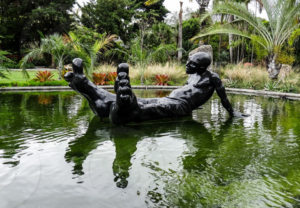 Since its reopening, the Miami Beach Botanical Garden has become a vibrant hub for cultural and community activities. It regularly hosts art exhibitions, workshops, and public gatherings, drawing both locals and visitors. From yoga sessions to plant markets and educational programs, the garden offers diverse programming that caters to a wide range of interests. This approach aligns with Miami Beach’s vision of creating inclusive spaces that enhance community engagement and cultural appreciation.
Since its reopening, the Miami Beach Botanical Garden has become a vibrant hub for cultural and community activities. It regularly hosts art exhibitions, workshops, and public gatherings, drawing both locals and visitors. From yoga sessions to plant markets and educational programs, the garden offers diverse programming that caters to a wide range of interests. This approach aligns with Miami Beach’s vision of creating inclusive spaces that enhance community engagement and cultural appreciation.
For local businesses, the garden’s events attract new audiences, increasing foot traffic in the area and providing opportunities for partnerships. Businesses in the hospitality and retail sectors, in particular, benefit from the steady stream of visitors seeking unique experiences within the city.
3. An Educational Resource for Sustainable Living
The garden’s educational initiatives are a cornerstone of its mission. It provides interactive programs on sustainable gardening, native plant species, and environmental conservation, making it an invaluable resource for students, families, and eco-conscious visitors. The garden’s layout itself serves as a living classroom, showcasing plants that flourish in Miami Beach’s climate and promoting biodiversity.
Local schools and organizations frequently collaborate with the garden to offer hands-on learning experiences, reinforcing Miami Beach’s role as a community committed to environmental education. This outreach effort contributes to a growing awareness of ecological issues and sustainable practices within the Miami Beach community.
The November 2011 reopening of the Miami Beach Botanical Garden represents more than just a physical transformation; it symbolizes Miami Beach’s dedication to preserving green spaces, promoting environmental education, and fostering a community-centered approach to city planning. As the garden continues to bloom, it reminds us that investments in sustainable design and public spaces yield lasting benefits, strengthening Miami Beach’s identity as a forward-thinking, eco-conscious city.


 83°
83° 

